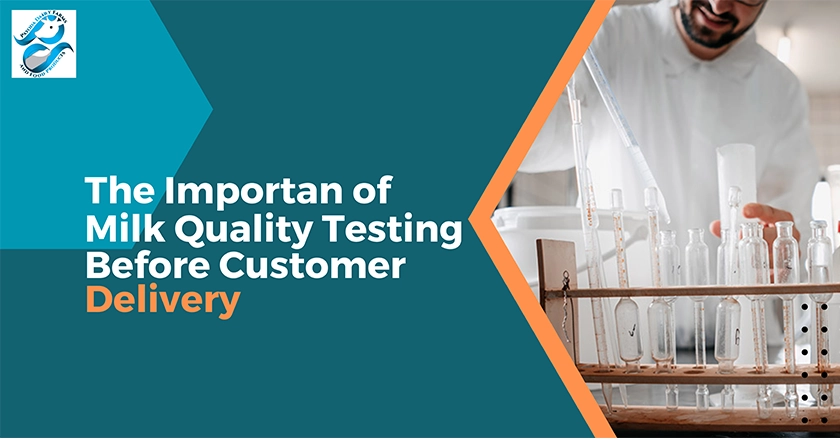The Importance of Milk Quality Testing Before Customer Delivery

Before delivery to customers, quality testing is a laborious process meant to analyse and assure the purity, safety, and overall quality of dairy products, specifically cow milk and buffalo milk. This procedure entails a series of tests and evaluations to ensure that the milk meets high quality criteria.
Advantages of Quality Testing Before Dispatch:
Consumer Safety: The primary advantage of quality testing is ensuring the safety of consumers. By rigorously screening for contaminants and pathogens, the dairy farm can prevent any harmful substances from entering the milk supply.
Consistency:
Quality testing helps maintain a consistent quality standard across all batches of milk. This consistency is critical in meeting consumer expectations and building trust.
Freshness:
Testing ensures that the milk is fresh and hasn't surpassed its shelf life. This is particularly important in the dairy industry, where freshness directly impacts taste and nutrition.
Purity:
The presence of any foreign substances or impurities can significantly affect the quality of milk. Quality testing helps identify and eliminate such issues.
Compliance:
It ensures compliance with regulatory standards and certifications, which is essential for the reputation and legality of the dairy farm.
Enhanced Reputation:
Regular quality testing and adherence to high-quality standards can enhance the reputation of the dairy farm, fostering customer loyalty.
Traceability:
It enables the farm to trace the source of any quality issues and rectify them, thus improving overall operations.
Sustainability:
Quality testing also plays a role in sustainability efforts, as it helps minimize waste and resources by catching issues before they become widespread.
faqs